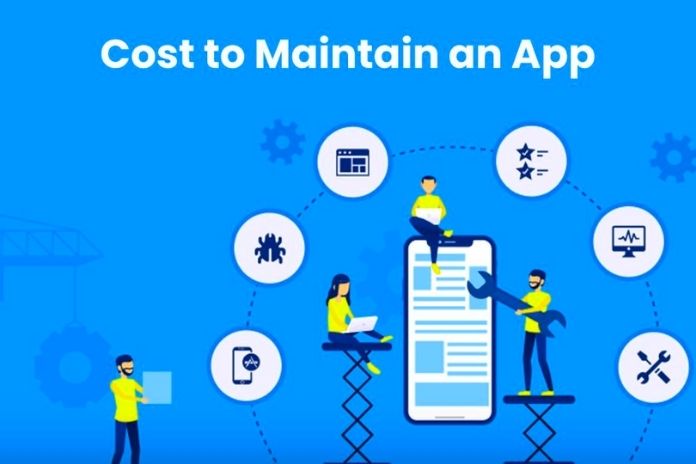Maintain an application: The lifecycle of an app development doesn’t end with the app’s successful publication on Google Play and the Apple Store – although a lot of the work has been done.
After creating an application, you have a significant result, but a new chapter begins with application maintenance. For which you will incur ongoing costs.
Not just ongoing costs but costs that can quickly vary and involve new factors. After all, we are talking about a market that requires technology and consumers, whose behaviors are affected by so many variables that they can rotate 180º from one hour to the next.
Furthermore, we are in a universe of 3.04 million apps on the Play Store alone, which is growing at a scale of 100,000 new apps per quarter – according to data from Statista – of which most will never be updated.
For many, the difficulty lies in predicting what will need to be maintained and the cost of keeping the app. With that in mind, in this article, we will list all the basic costs of maintaining an app and, based on them, estimate how much you will have to take out of your pocket.
As a disclaimer, we repeat: we will make an estimate – with all its pros and cons. Apps can be built in very different ways, and, more than that, the goals for which they are intended can lead to greater or fewer maintenance needs after creation.
How To Calculate: The Costs Involved In Maintaining The App
In a very technical view, the maintenance of an application is to fix bugs and adapt them to new devices and system versions.
But in fact, it’s never just that: the maintenance costs of an application will include many factors, depending a lot on how it was built, on the need to add new functionality, add content, to modify the design or technologies.
So, it is pretty likely that when you think you are saving on something during production, later on, you will incur additional costs for this decision.
The total cost will depend on plans to improve the app. Let’s cite the main factors at play in in-app maintenance.
Content Updates And News
Conquering users is a big challenge for anyone who creates an app. But, if you are going through this phase well, you might think: in a winning team, it doesn’t move.
Therein lies the danger. In the app world, it’s the opposite. Active users rely on regular updates to their apps. E-commerce needs promotions and news in its catalog, and a social network will have new features. It’s these updates that ensure engagement and ongoing feedback.
So if you must continue to make content addition and production-based improvements to your app, that will be an ongoing cost.
Analytics And Surveys
Monitoring interactions and the overall performance of the application, with the tracking of metrics such as the number of installs, engagement, and heat maps, are fundamental to guide updates according to user preferences validated by real users.
Tools like Flurry, Google Analytics, and others are free, but advanced analytics tools will pay. This account also adds the costs of analysis and possible usability research, UX reviews, and new trends.
Maintenance Of Technical Issues And Review Of Design And Development
Bug fixes, code refinements, design changes, and new functionality caused by internal or external needs – such as changes in libraries and operating systems, but also in the devices themselves – are ongoing costs.
Here, we can also mention changes in the rules or terms and conditions of use of the app stores. The variation can be huge, ranging from minor code tweaks to major functional updates.
Security
Security is a relevant cost of maintaining an application. Updating protocols to ensure shielding against threats, which will increase considerably with the scale of the application, as well as to ensure compliance with new legislation – such as the LGPD – are constant points of attention.
Infrastructure
Hosting, database, or server services are included in ongoing app expenses.
Integrations
Integrations with services such as payment platforms, push notifications, maps, and other systems, such as support via bots, will also incur more costs as they involve monthly or annual fees. If you use an app-building platform, APIs, storage, and other features, add.
Cost To Maintain An App
Given this, we can give a more informed answer about how much it costs to maintain an application. Spending on all these items will be around 15% to 20% of initial development costs. This is on an annual cadence, considering a very conservative version of change about the initial project.
Now, applications designed for scale, monetization, and popularity – which need to be kept very current – will have much higher maintenance costs, exceeding 50% of the development cost per year.
Also Read: Discover Five Tips To Avoid App Development Failures




